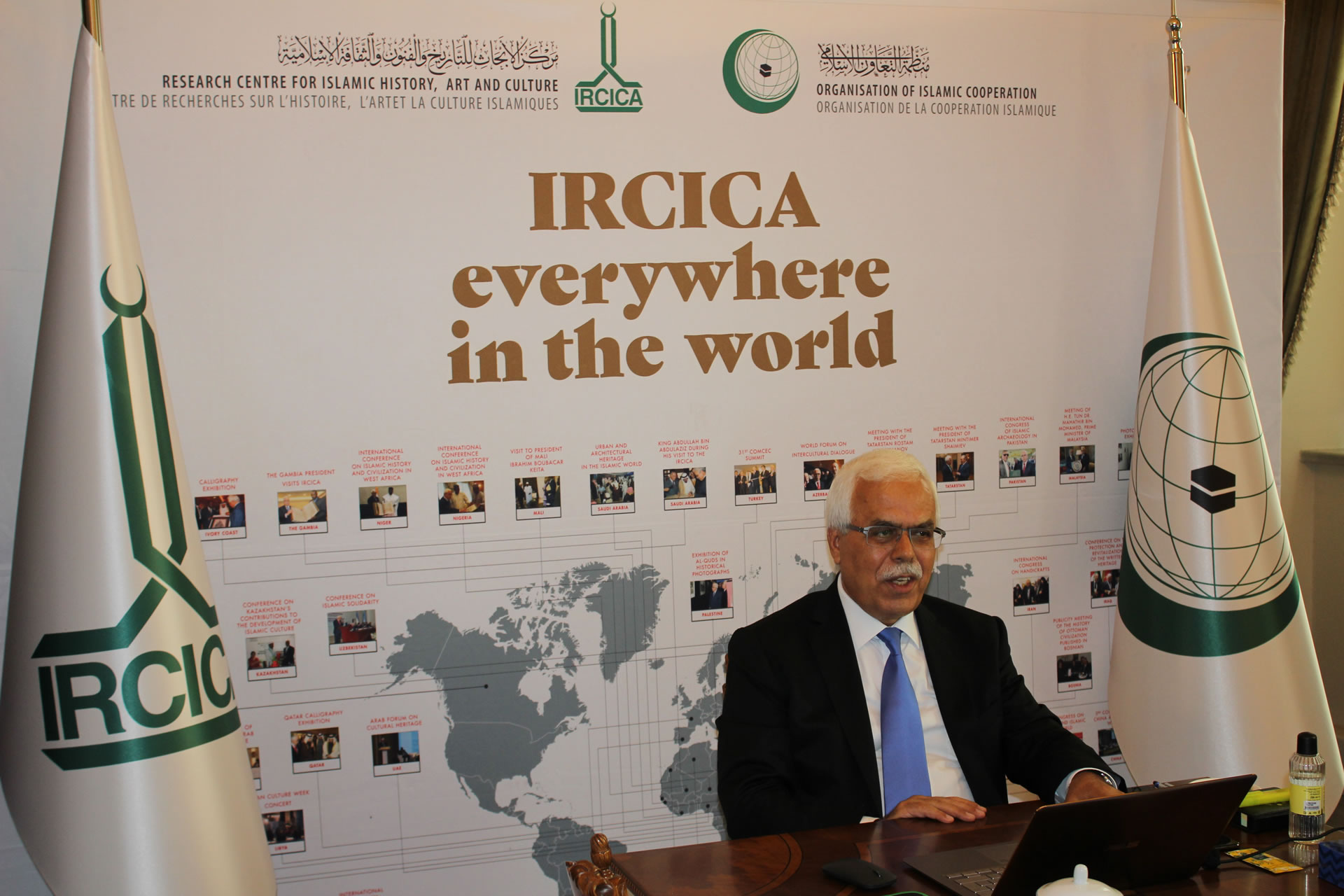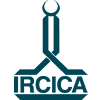Leading experts of urban history and architectural planning contributed their views and recommendations to IRCICA’s webinar on “Urban History of the Islamic World and Prospects for the Post-Pandemic Era” held on 16 June 2020 at 13.00 (GMT+3).
Prof. Dr. Halit Eren, Director General of IRCICA, opened the meeting with a reference to IRCICA’s engagement, with permanent activity programs and several different projects, in studies on urbanism, architectural history and heritage of the Muslim world and conservation of cultural heritage. He said that in this context, IRCICA undertook scholarly consultations and research on the effects of the pandemic and possible needs and transformations of post-pandemic times in the Islamic cities with special focus on heritage sites and monuments. Prof. Eren said that the effects of the pandemic on cities will differ according to existing conditions of those cities but generally the need for space and air circulation and sanitary requirements in infrastructures will be priority concerns in all planning and construction, as was the case in world capitals during and after the epidemics of recent history.
The webinar was moderated by Prof. Dr. Sadık Ünay, Consultant to the Director General of IRCICA. After Director General’s opening address, Prof. Ünay first invited to the floor Prof. Dr. Gulzar Haider.
Professor Gulzar Haider, Dean of Razia Hassan School of Architecture, Beaconhouse National University, Pakistan, gave remarks on educational aspects, in architectural studies and beyond it, of reactions to the pandemic. He said that human minds have always been taught of the world as a beautiful planet that keeps functioning regularly; then when the sudden unforeseen, the epidemic erupts, people, by a reaction that is only human, fail in being able to convincingly explain the fate and objectively react to it. In his closing remarks at the end of the meeting, Prof. Haider underlined the urgent need to take new measures to protect cultural and architectural heritage sites and collections which are under higher threats in periods of virtual visits and remote activities.
Prof. Attilio Petruccioli, professor of landscape architecture, University of Bari, Italy, pointed to the fragility of cities, the reason being that “sustainability” has until now been taught in terms of quantitative issues instead of pragmatic issues. Instead of a segmented philosophy in city planning and building, there has to be its opposite, what Prof. Petruccioli calls “organic” philosophy. Sustainability relies on relations between the different elements of a city. He evoked the “oasis” which is a whole system that departs from the need to survive and whose elements are interconnected. Prof. Petruccioli suggested that the “oasis” approach be applied in the city, with not an “inter-disciplinary” but a “disciplinary” approach where all specialists would work together for the same agreed aims.
The next speaker, Prof. Arch. Amir Pasic, Commissioner for National Monuments, Bosnia and Herzegovina, Former Head of Architecture Department, IRCICA, made a presentation on screen analyzing the basic elements of cities for people to live in urban environment, from where suggestions can be developed on future re-arrangements in cities. Every city is a process of transformation, he said, and every generation comes in with its new technologies, the resulting combination is not always positive due to lack of coherence. He said that the significant characteristic of the historical urban settlements is continuous change. The challenge for the future is, in the same way, to build the right balance between constantly advancing technologies and the basic principles about “philosophy of life” which have been there for centuries. Prof. Pasic stressed that the strategy of sustainable urbanism can only be realized by all professionals from different areas working together.
The next speaker was Prof. Dr. Mavlyuda Yusupova, Head of the Department of Architecture, Fine Arts Institute, Academy of Sciences of Uzbekistan, Tashkent. In a comprehensive presentation on screen titled “Architecture of Historical Cities of Uzbekistan in the Post-Pandemic Era: Aspects of Tourism”, Prof. Yusupova outlined the development of the tourism sector in Uzbekistan and the related state strategy which emphasized valorization of the architectural heritage and historical sites. In the post-pandemic period, in many countries, including Uzbekistan, active preparations are underway for alternative tourism destinations and resorts, such as ecologically pure natural environments and mountain resorts. Measures are being taken towards sanitary-hygienic and epidemiologic preparation of regions and historical cities for receiving visitors. Prof. Yusupova cited the new norms of post-pandemic city planning and architecture, aimed at improved ventilation, favorable solar and humidity conditions, finishing materials adapted with improved antiseptic and disinfectant properties. The new standards of post-pandemic architecture will also be taken into account when building tourism infrastructure.
After the presentations, Prof. Ünay, moderator, invited comments or questions by the attendees. Dr. Mounir Bouchnaki, former Director General of ICCROM, Advisor to the Director General of ICCROM and the Director General of UNESCO, joined the meeting online. Dr. Bouchnaki said he agreed with the points mentioned regarding challenges facing cities of the world, faced similarly by Islamic cities, in the pandemic period. He expressed his appreciation that these issues were taken up by IRCICA. New guidelines will have to be created, including with regard to cultural heritage. He gave examples of action undertaken in some countries towards preservation of historical sites, and said that the work should continue on the spot as well and not contend with virtual visits.
Dr. Nouman Ahmad from the Department of Architecture and City Planning, NED University of Engineering and Technology, Karachi, Pakistan, joined the meeting. Dr. Ahmad gave remarks on impending impacts of the pandemic on cultural heritage. In general, governments will have to reconsider their policy priorities. In particular, much of the activities that were related to heritage sites will not happen anymore, but new modes will have to be found. People will have to see how to use these means to enlarge public access to virtual visits.
The speakers underlined the urgency of the issues and the need to maintain the platform created through this webinar.
Director General Prof. Dr. Halit Eren concluded the meeting thanking the participants and the attendees. He said the remarks raised and suggestions formulated will be recorded, for reference in the continuation of the studies.





